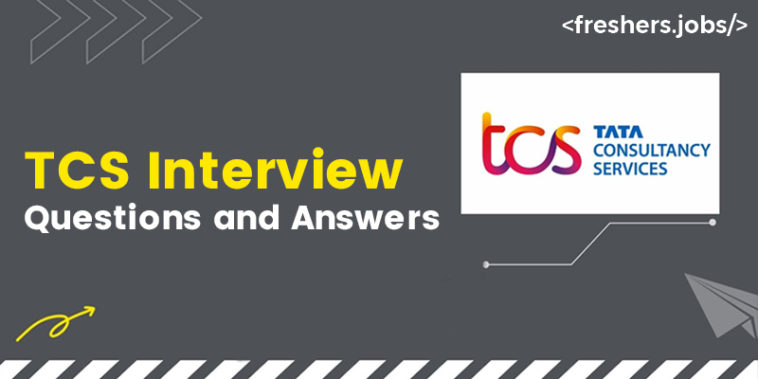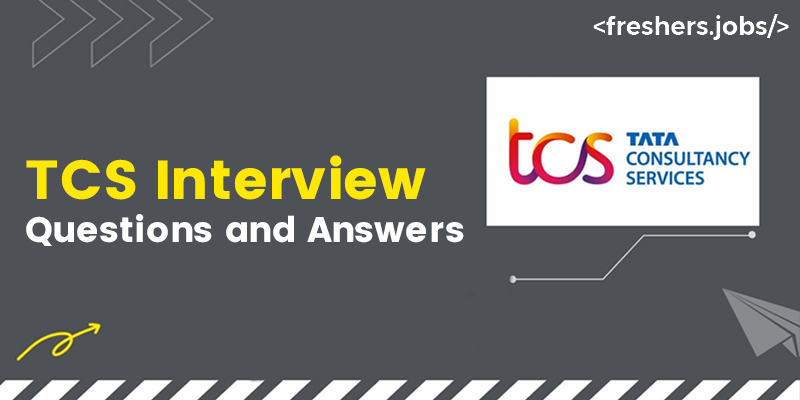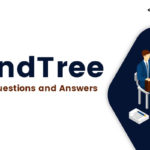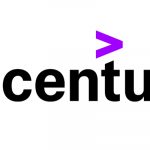In recent years, the IT industry in India has seen significant growth, but only a few companies can offer their employees a stable, long-term career. This is why many individuals prefer to work for well-established companies.Aligning with a respected brand not only gives confidence in an individual’s career path but also ensures a certain level of job security. TCS, a renowned name, is widely perceived as a platform that can not only elevate the career prospects of freshers jobs seekers but also promote a better work-life balance.
Tata Consultancy Services, a prominent company offering IT services, consulting, and business solutions, has played a pivotal role in the transformation endeavors of countless global corporations for over half a century. Headquartered in Mumbai, Maharashtra, and with its primary campus situated in Chennai, Tamil Nadu, TCS holds the distinction of being the world’s largest IT services firm in terms of market capitalization, which stood at $169.2 billion as of February 2021. As part of the Tata Group, India’s largest multinational corporate conglomerate, tcs recruitment proudly boasts a workforce of approximately 488,000 top-tier consultants spread across 46 countries.
Interview Process
TCS serves as an ideal launchpad for newcomers embarking on their career journey. It offers a remarkable work environment characterized by a welcoming atmosphere and a conducive ambieance for both personal growth and professional growth. TCS conducts extensive recruitment drives annually to identify potential candidates for a job role. This blog not only guides you through effective responses to TCS interview questions but also outlines a roadmap for freshers to realize their aspirations of securing a coveted position at TCS. One of the important aspects of TCS is its annual extensive recruitment drive, which aims to identify and onboard potential candidates for the coveted position of Software Engineer. TCS offers a lot of job opportunities for freshers. Candidates can visit TCS Jobs For Freshers to apply for various positions relevant to their skills and abilities.
Interview Round
Interview Round – 1 TCS NQT: The initial phase of the tcs recruitment process involves the TCS NQT (National Qualifier Test), which is renowned for being one of the most challenging stages in the selection procedure. This test will assess a candidate’s abilities and skills comprehensively. TCS NQT Examinations are available in both online formats (taken remotely from home) and at physical TCS iON Authorized Exam Centers. There are 5 segments in this test. Candidates will undergo assessment in the following categories:
- Numerical Ability: This section evaluates proficiency in topics such as Number Systems, Arithmetic, Elementary Statistics, and Data Interpretation.
- Verbal Ability: This part assesses verbal communication, including English grammar, correct usage, and reading comprehension.
- Reasoning Ability: Candidates will be evaluated on their ability to identify word and mathematical patterns, solve problems, analyze figurative and factual information, make decisions, engage in propositional reasoning, and demonstrate visual-spatial reasoning skills.
- Programming Skills: The programming section examines candidates’ knowledge and competence in areas directly related to job roles, including Pseudo-code, Algorithms, Programming structures, fundamental Software Development Life Cycle (SDLC) concepts and associated documents, and practical implementation using programming languages like C, C++, and Java.
- Coding: Candidates are expected to be proficient in coding using programming languages such as C, C++, Java, Python programming, and PERL, and they may also be required to complete hands-on coding exercises.
Interview Round 2 – Technical Interview: This section is the most important segment of the hiring process, so it’s essential to be well-prepared for it. The entire tcs interview process will revolve around evaluating your technical expertise, professional background, and key projects. The TCS technical interview, conducted in person, is structured to test the candidate’s understanding of various areas, including data structures and algorithms, database management systems, operating systems, networking, object-oriented programming concepts, and proficiency in a programming language of your preference. Be prepared, as there is a significant likelihood that you will be asked to write code on paper during this phase. If you are looking for job vacancies in Pune, you can look for job openings available in that city. Visit fresher job openings in Pune to find job positions that align with your skills.
Interview Round 3 – Managerial Round: The Managerial Round is conducted by a panel of senior members and takes place in a face-to-face interview setting. This round can encompass either purely technical tcs interview questions or a blend of technical and managerial inquiries, depending on the nature of the position you are being interviewed for. The majority of the questions will align with the specific job profile, so staying updated on relevant technologies and software is very important. Additionally, you may encounter questions designed to assess your problem-solving abilities and thought processes, potentially placing you under pressure to gauge your reactions. They might also ask about your achievements listed in your resume, and you might need to provide explanations or justifications. Expect inquiries regarding your career goals, motivations for joining TCS, and related topics. The panel will evaluate your compatibility with the company’s corporate culture, your attitude, soft skills, aspirations for career growth, and other pertinent factors during this round. You may also encounter general tcs interview questions about your educational background, area of expertise, willingness to relocate, and more. Regardless of the direction the interview takes, always maintain professionalism and composure. The interview panel’s goal is to challenge you and assess your adaptability. Stay confident and respond to questions to the best of your ability.
Interview Round 4 – HR Round: In this round, you can expect a range of questions covering topics such as your educational background, personal interests, and family history during the HR interview. In addition to the standard HR inquiries about your strengths, weaknesses, reasons for choosing the company, and why you’re a suitable candidate, you might also face questions related to TCS itself. These could include queries about TCS’s founding date, objectives, values, organizational structure, and more. It’s important to note that while many candidates perceive the HR interview as straightforward, a subpar performance in this stage can potentially jeopardize your chances of securing the job, even if you’ve successfully navigated previous hurdles like the aptitude test and technical rounds. The key is to project a pleasant and confident attitude. Interviews can be lengthy and demanding, so remember to maintain a positive attitude and smile throughout the tcs interview process.
- Tell me about yourself.
Begin by discussing your academic background, detailing your projects, highlighting any achievements, and mentioning your involvement in extracurricular activities. If you’re a beginner, emphasize your strengths. Additionally, provide insights into your hobbies, personal background, and related aspects of your life.
- Why did you choose to work in the IT field?
I chose to pursue a career in the IT field because I have always been fascinated by the rapid advancements in technology and how it shapes our world. During my academic journey, I realized that I naturally had a problem-solving ability and a strong curiosity about how computers and software work. The IT industry is incredibly dynamic, offering a lot of opportunities to learn and grow. It provides a platform for me to apply my theoretical knowledge in practical scenarios, which is something I find really rewarding.</span
- What motivates your interest in working at TCS?
I was motivated to work at TCS because of its reputation as a global industry leader with a commitment to innovation and career development. I am excited about the opportunity to learn from experienced professionals, contribute to impactful projects, and grow my skills within such a renowned organization.
- Tell me about your salary expectations.
I’m primarily focused on gaining valuable experience and building a strong foundation in my career. Therefore, I’m open to discussing a salary that aligns with industry standards for entry-level positions and reflects the responsibilities and opportunities provided by the role at hand.
TCS Technical Questions
Let’s look into the tcs interview questions asked in the Technical round Interview.
Define Socket Programming and list out the merits and demerits of Java Sockets.
Socket programming is a technique that enables communication between two network nodes. One socket, also known as a node, awaits connections on a specified port at an IP address while the other socket initiates a connection with it. The server creates a listening socket when a client connects to the server.
Merits of Using Java Sockets:
- Sockets are versatile and effective, making it straightforward to develop efficient socket-based programming for general communication purposes.
- Sockets minimize network traffic by allowing Java applets to transmit only the data that has changed, unlike HTML forms and CGI scripts that send entire web pages with each new request.
Demerits of Using Java Sockets:
- Security restrictions can be restrictive at times, as Java applets running in web browsers can only connect to the machine from which they originated and not elsewhere on the network.
- Socket-based connections primarily involve the transmission of raw data packets between programs. Both the client and server must implement mechanisms to make this data meaningful.
- Socket-based systems have limited reusability since data formats and protocols are specific to the application.
What is IPsec and its components?
IP Security (IPSec) encompasses a standardized set of protocols that are crafted by the Internet Engineering Task Force (IETF). These protocols are designed to enhance the security of data exchanged between two points of communication over an IP network. IPSec focuses on providing data authentication, maintaining data integrity, and ensuring data confidentiality. Additionally, it outlines the procedures for encrypting, decrypting, and authenticating packets, along with specifying secure methods for key exchange and key management. IPSec comprises the following key components:
- Encapsulating Security Payload (ESP): ESP plays a vital major in ensuring data security. It provides data integrity, encryption, authentication, and safeguards against replay attacks. Moreover, it supports payload authentication to further enhance security.
- Authentication Header (AH): AH is another essential component that prioritizes data integrity, authentication, and protection against replay attacks. However, it does not handle encryption. AH primarily focuses on preventing unauthorized packet transmission but does not ensure data privacy.
- Internet Key Exchange (IKE): IKE is a network security protocol that facilitates the dynamic exchange of encryption keys between two devices. It establishes a secure channel known as a Security Association (SA), which defines common security properties for secure communication. IKE also offers protection for message content and serves as a flexible framework for implementing widely accepted algorithms such as SHA and MD5. Each packet generated by the IPSec algorithm is assigned a unique identifier, enabling the recipient device to verify its authenticity. Unauthorized packets are discarded and not delivered to their intended destination.
What is round trip time?
Round-trip time (RTT) is the duration, typically measured in milliseconds (ms), for a network request to journey from its source to a destination and then return to the original starting point. RTT serves as a valuable metric for assessing the quality and reliability of a connection, whether it’s within a local network or across the broader Internet. Network administrators commonly rely on RTT to evaluate network connection performance and stability.
In conclusion, by reviewing and practicing these tcs interview questions, candidates can enhance their interview readiness and increase their chances of success when pursuing job opportunities at TCS. Remember that interview preparation is a very important step toward a successful career, and this blog serves as a valuable resource in that journey.




